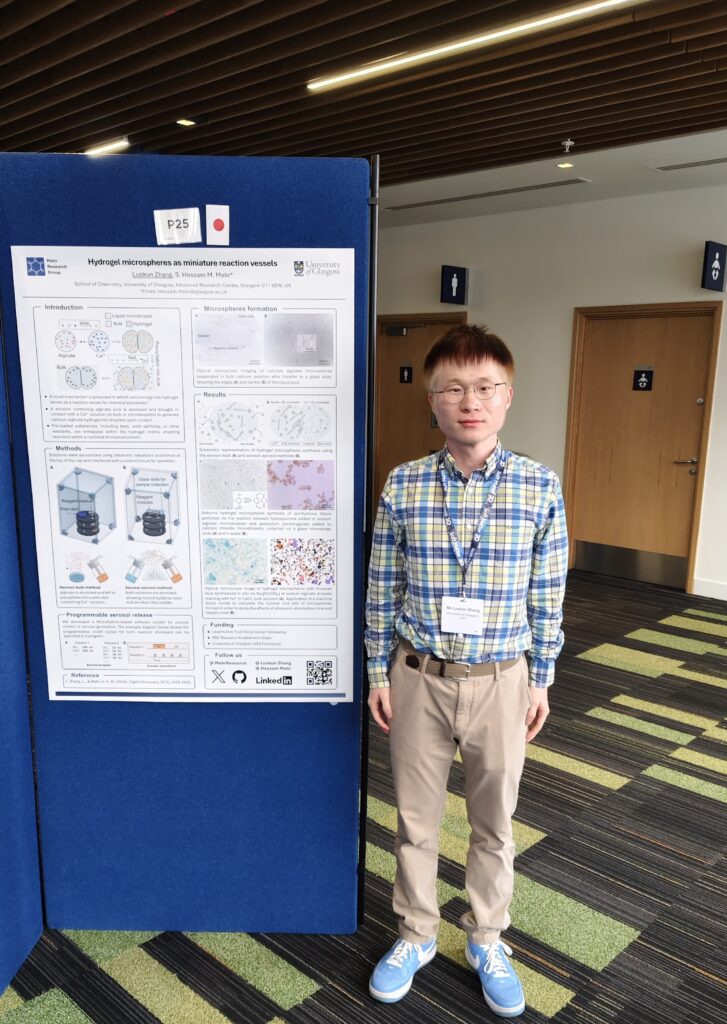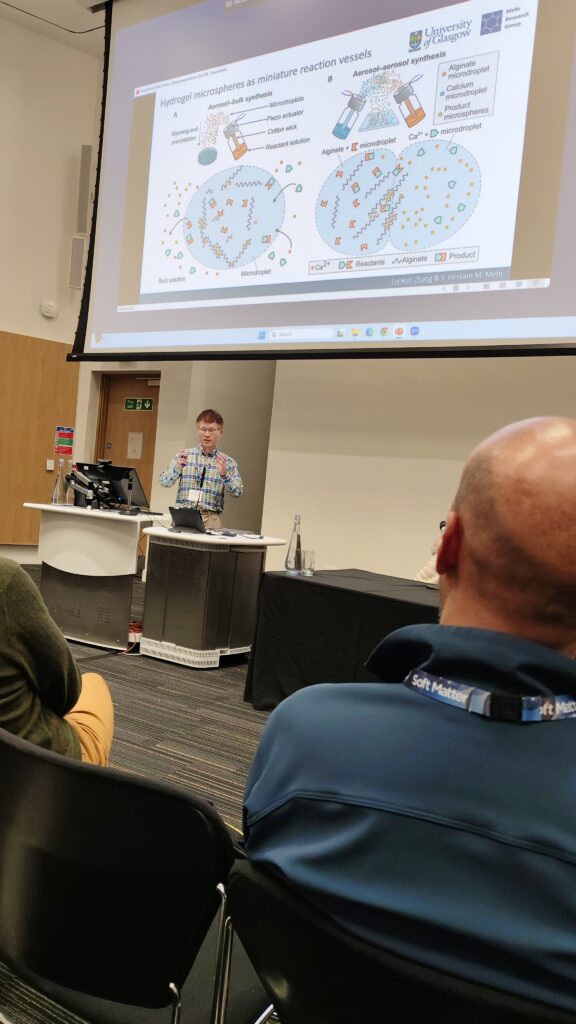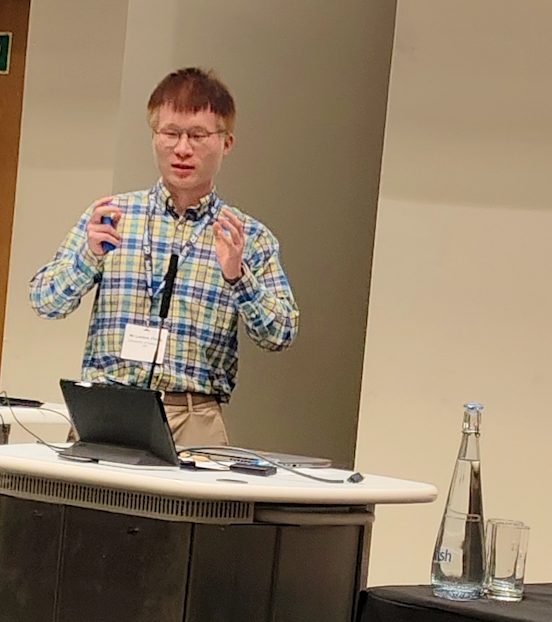Last week, I had the pleasure of attending the Advances in supramolecular gels Faraday Discussion, held in Glasgow, by the Royal Society of Chemistry. The meeting brought together leading researchers and early-career scientists from across the globe to discuss the latest developments in supramolecular gel systems — from fundamental self-assembly mechanisms to emerging applications in biomaterials and soft nanotechnology.

What sets Faraday Discussions apart is their distinctive format: all papers are pre-published, and the sessions are entirely dedicated to live discussion. This structure fosters an in-depth and often candid exchange of ideas, far beyond the conventional Q&A. It was a privilege to witness and be part of such dynamic scientific dialogue.
I had the opportunity to contribute a poster presentation, as well as a lightning talk, where I briefly introduced my work on hydrogel microspheres as miniature reaction vessels (see our recent related publication). The lightning presentation format, though challenging due to its brevity, provided a great platform to highlight key aspects of our work in a formal setting and to set the stage for further discussion during the poster session. In the poster session, I presented our work on the synthesis of aqueous gels using ultrasonic atomization. The resulting hydrogels serve as a container for conducting chemical reactions, and the poster included our preliminary investigations of this idea.

Among the many insightful contributions, I was particularly inspired by the discussion around the various applications of supramolecular gels, and the key discussion point was understanding how to control properties so that the gels can be used in specific applications. Designing gels for applications is difficult as it requires control of properties over many length scales as well as understanding of processing kinetically trapped materials.
Beyond the formal sessions, the coffee breaks and conference dinner were excellent opportunities to connect with researchers from diverse backgrounds. I had the chance to exchange ideas with other scientists.
Overall, the Faraday Discussion was a thoroughly rewarding experience — both intellectually and professionally. I’m grateful to have been part of such a focused and stimulating event, and look forward to integrating some of the feedback and ideas into the next stages of my work.
I would like to thank the organizers for curating such an engaging and insightful event that brought together researchers from different institutions, and the University of Glasgow Chemistry Graduate School for a generous travel award, which allowed me to attend this event.

Leave a Reply
You must be logged in to post a comment.